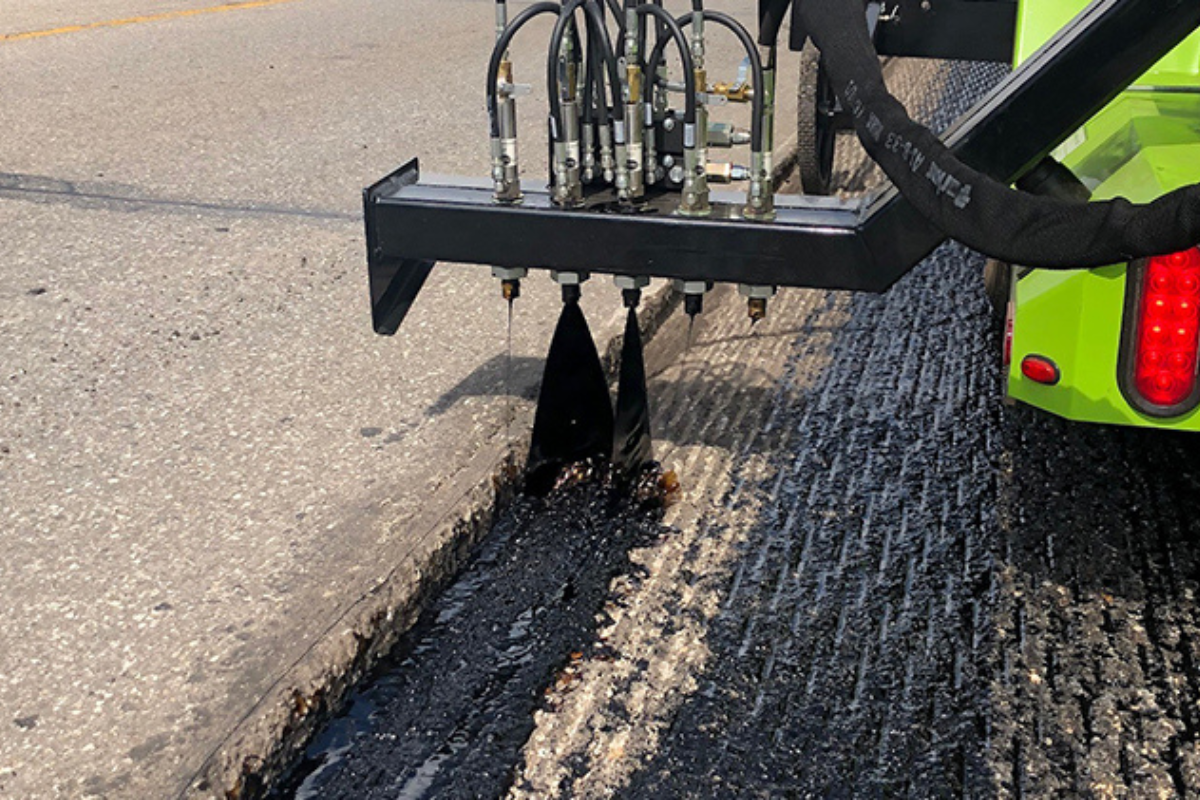Asphalt, a fundamental component of modern road construction, has significantly transformed the landscape of driveway, roadway, and parking lot paving practices. Its reputation for cost-effectiveness, resilience, and eco-friendliness has elevated it to the status of the most frequently recycled material in the United States, with a staggering annual deployment of 18 billion tons and a coverage span of 94% across American road networks. However, recent research has brought into focus the potential health implications associated with asphalt usage, prompting the industry to embark on a quest for innovative remedies. This article will intricately explore the multifaceted realm of asphalt production processes, underscore the critical significance of sustainable recycling methods, and underscore the pivotal role played by advanced machinery, such as the cutting-edge Cimline equipment, in facilitating asphalt repair and maintenance procedures.
Making Asphalt
At its core, asphalt comprises 5% asphalt cement and 95% aggregate, serving as a binding agent and providing structural support, respectively. Aggregate varies based on climate and project requirements, ranging from larger, smoother rocks for lower pavement layers to finer, coarser aggregate for surface-level applications. Manufacturers meticulously create asphalt in plants across the U.S., where they combine aggregate with heated asphalt cement using industrial mixing machines.
Despite its effectiveness, asphalt’s complex composition raises concerns about emissions and health hazards. Recent studies have shed light on potential health hazards and researchers are actively exploring innovative additives and production methods to mitigate these risks and enhance the sustainability of asphalt production. Researchers are exploring innovative additives, such as iron-rich biochar, to assist in carbon capture and mitigate the risks of VOCs, all while enhancing durability and sustainability.

Recycling Asphalt
One of asphalt’s most remarkable attributes is its recyclability, making it one of the most recycled materials in the United States. Asphalt’s sustainability shines through its robust recycling efforts, with more than 94% of old asphalt pavements repurposed in new construction projects. Reclaimed asphalt pavement (RAP) and recycled asphalt shingles (RAS) play pivotal roles in reducing environmental impact and conserving resources. In 2021 alone, the use of RAP spared 2.6 million metric tons of CO2e from the atmosphere, highlighting its significant contribution to carbon emission reduction. With 95% of asphalt mixtures reclaimed from old pavements, the asphalt industry continues to lead the charge in sustainable recycling practices, setting an inspiring example for other sectors. This commitment to recycling extends beyond environmental considerations, reflecting the industry’s dedication to sustainability and resource conservation.
Repairing Asphalt with Cimline
Maintaining the integrity of asphalt surfaces is essential for ensuring safe and efficient transportation networks. Companies like Cimline have emerged as leaders in asphalt repair technology, offering a range of innovative solutions to address various repair needs effectively. From crack sealing to pothole patching, Cimline’s cutting-edge equipment empowers operators to achieve exceptional results with ease. Features such as oil jacketed kettles and electronic burner ignition demonstrate Cimline’s commitment to quality, efficiency, and user-friendly design. At Haaker Underground, we proudly partner with Cimline to provide industry-leading asphalt repair equipment, designed to streamline repair processes and maximize productivity.
Looking ahead, the asphalt industry is poised to embrace innovation and sustainability to meet the evolving demands of transportation infrastructure. Researchers and industry professionals are exploring alternative additives and advanced recycling technologies to enhance the environmental sustainability of asphalt production and repair. By harnessing the power of innovation and collaboration, we can pave the way for a greener, more sustainable future while ensuring the resilience and longevity of our asphalt surfaces.

Asphalt’s journey, from production to repair, exemplifies its resilience and versatility as a paving material. Through sustainable practices and innovative solutions, the asphalt industry continues to pave the way for a greener and more efficient future. By embracing recycling initiatives and investing in state-of-the-art asphalt repair equipment like Cimline’s, we can ensure the longevity and sustainability of our transportation infrastructure while minimizing environmental impact. Join us in our mission to revolutionize asphalt repair and maintenance with Cimline’s industry-leading solutions. Contact Haaker Underground at (909) 598-2706 or message us directly to explore our extensive range of products and take the first step towards enhancing your asphalt repair endeavors. Let’s build a brighter, more sustainable future together.
